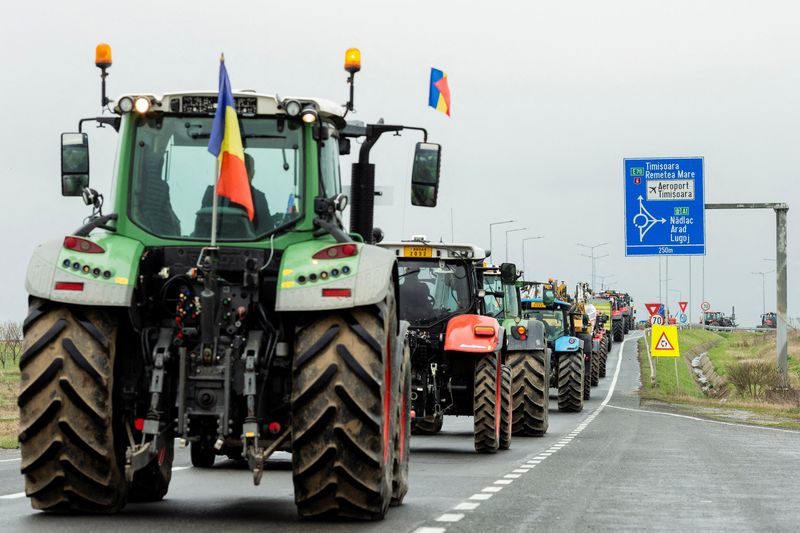BUCHAREST (Reuters) - Romania's coalition government said on Friday it had reached an agreement with farmers and hauliers to end weeks of protests against high business costs, even as farmers elsewhere in the EU continued to block roads and border crossings.
The protests stem from anger about low prices for produce, rising costs, imports of cheap foodstuffs and constraints imposed by the European Union's drive to fight climate change.
In Romania, hundreds of farmers and truck drivers began protesting three weeks ago, with convoys of tractors and trucks slowing or blocking traffic on national roads near large cities, including the capital Bucharest.
They also briefly blocked a border crossing with Ukraine and tried to cut access to the Black Sea port of Constanta.
The government has made concessions, taking steps to increase subsidies for diesel, address high insurance rates and expedite subsidy payments, as well as technical measures to reduce long waiting times at border crossings.
On Friday, Prime Minister Marcel Ciolacu and protesters’ representatives signed an agreement that sets up a committee bringing together several ministries to come up with solutions, the government said.
Romania is holding local, parliamentary, presidential and European elections this year.
French farmers also began lifting blockades on Friday after their government made further concessions.
But elsewhere protesters blocked the Dutch-Belgian border and roads in Greece, while the Polish farmers' union Solidarity announced a general strike starting next Friday, to include a blockade of border crossings to Ukraine.
Which stock should you buy in your very next trade?
AI computing powers are changing the stock market. Investing.com's ProPicks AI includes 6 winning stock portfolios chosen by our advanced AI. In 2024 alone, ProPicks AI identified 2 stocks that surged over 150%, 4 additional stocks that leaped over 30%, and 3 more that climbed over 25%. Which stock will be the next to soar?
Unlock ProPicks AI